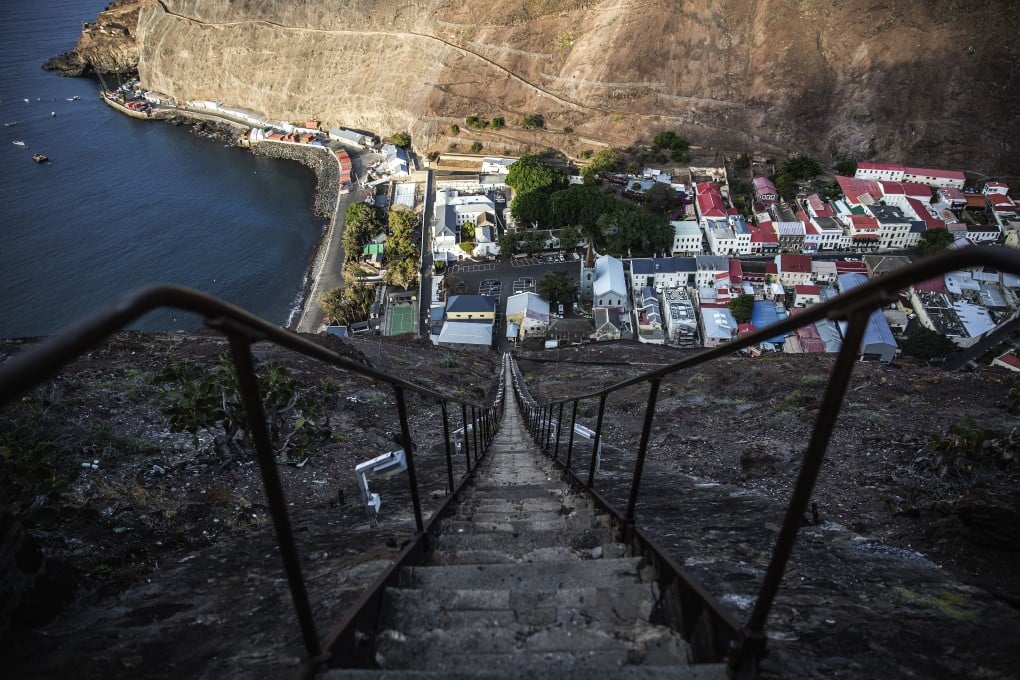The tiny Atlantic island of St Helena is turning towards tourism – will it be kill or cure?
Once sustained by trading ships as they paused to replenish supplies en route to Hong Kong, and home to Napoleon Bonaparte during his exile, the British territory hopes to reinvent itself as a tourist hot spot

Founded in 1659, isolated mid-ocean 1,930km west of Africa and almost halfway to South America, it is the second-oldest of Britain’s remaining overseas territories after Bermuda. With a population of a mere 4,415, St Helena is just 10km across at its widest point, and about 50 per cent larger than Hong Kong Island, which was annexed by the British almost two centuries later.
On this tiny, sheer-sided volcanic mass the roads are mostly too steep, narrow and winding for regular transport routes. Instead, a shipping container is arriving at the dock in Jamestown, the capital, where its contents of goods will be brought up through a narrow arch in the city’s ancient fortifications, still bearing the arms of the long since vanished British East India Company.
Fresh fruit sells fast here, although prices can be as steep as the hillsides. For the next few days the talk of the island is the appearance of peaches, at £1.05 (HK$10) each; they sell out, even though incomes average only £708 a month.
“We see it happen every time the ship comes in,” says Derek Richards, a resident who runs a sandwich bar inside the grey-and-white Victorian market, which was built in 1865. “Every time the fruit goes on the shelf, people prioritise.”
We used to service 1,000 ships a year – sailing boats – but now we can barely grow enough potatoes
St Helena was once sustained by British vessels blown in on trade winds and laden with silk, porcelain and tea, as they paused to replenish supplies between Hong Kong and Britain. The advent of the steamship and the opening of a shorter route via the Suez Canal, in 1869, put an end to all of that.
In one of the most remote inhabited places on Earth, “the agricultural industry needs a pretty good shot in the arm”, says Dr Philip Rushbrook, the island’s dapper, silver-haired governor. “In the past we used to service 1,000 ships a year – sailing boats – but now we can barely grow enough potatoes.”
